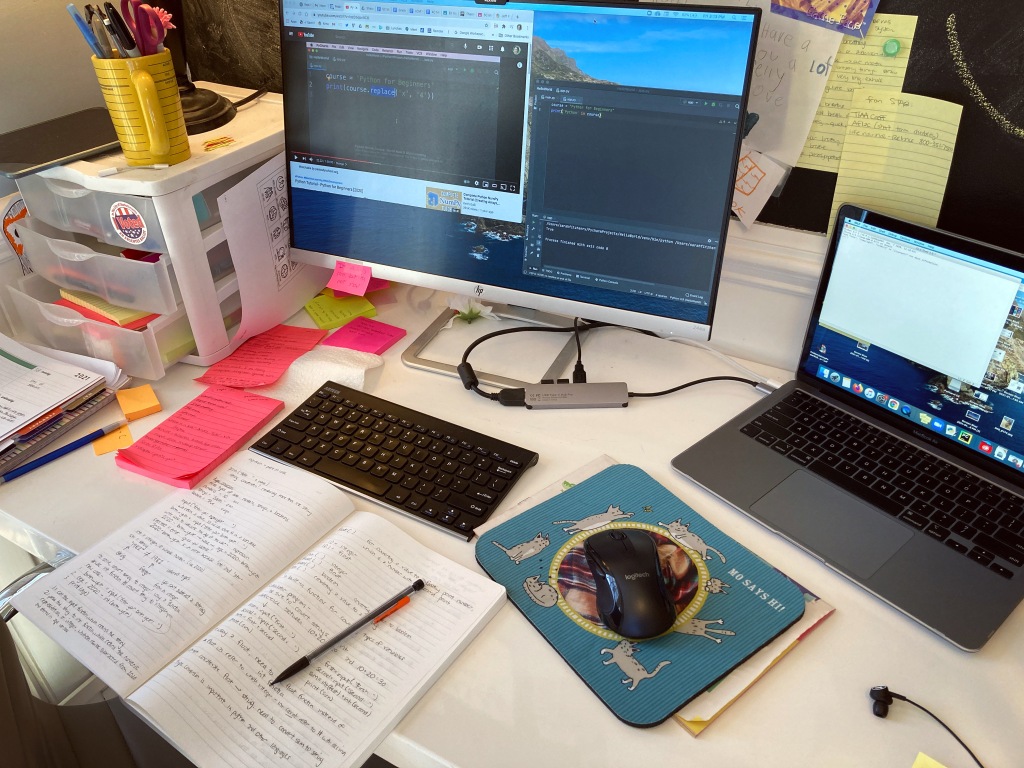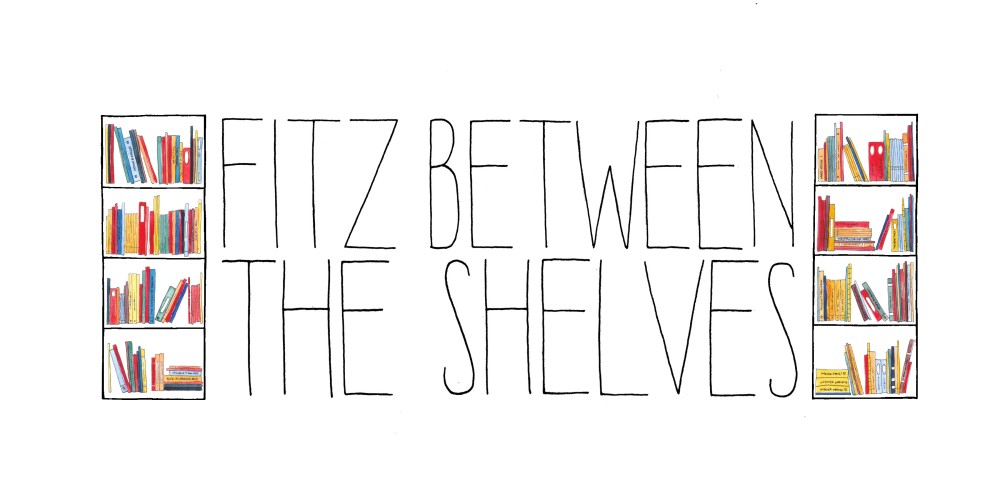
My 7th graders are teaching me to code in Python. I have no idea what I’m doing. And it is so great.
There’s some important context here, and it starts with a big question: Are you comfortable with not being the expert in the room? For me, that’s when the magic happens.
When I first started teaching, I only wanted to cover topics that I knew inside and out. I wanted to make sure that I was the wisest, most thorough source of information for my students at every turn. This was the model for teaching that I knew and understood: The adult is the expert in charge of sharing knowledge, and the students are the vessels waiting to be filled. Putting myself in the center and sticking to what I knew made me more confident, and helped me feel like I was in charge. Teaching is hard, and it felt like I needed that power. Maybe you can relate?
Sometimes, this is the right teaching strategy. There is absolutely a place for direct instruction and teacher-as-expert in the classroom. But somewhere along the way, I realized that in using this form of pedagogy all the time, I had created an environment where we were all surviving, but no one was thriving. My students had all sorts of passions and curiosities that they weren’t bringing to the classroom, because they could sense that there was no room for it. Conversations were one-sided and learning was shallow. My insecurity was blocking all the light, and they couldn’t grow.
The change started, as a lot of my amazing teaching moments do, in the computer science lab with Kim Wilkens. I started introducing concepts and tools that I didn’t fully understand. At first, it didn’t feel great (think of going from 👩🏻🏫 to 🤷🏻♀️😬). There was a lot of shrugging and nail biting. But when my classes realized that I genuinely couldn’t swoop in and “save” them with an expert answer, their whole demeanor changed. Our classroom community transformed. Suddenly, there was no one to bail them out. If they wanted something built, or accomplished, they had to figure out how to do it. There was no moving forward unless they found the way. They stepped up in an amazing way.
Once I saw it, I couldn’t UN-see it; I wasn’t blocking their light anymore.
In the last few years, I’ve found myself purposefully creating moments and activities outside of my expertise. It upsets the natural order of the classroom and pushes kids out of their comfort zone in the best way. For me, this naturally happens when I’m working with computer science and technology, since students arrive at my classes as digital natives with so much inherent skill. But I’m finding that it works naturally in my other classes, too, especially in an online setting. My fourth graders this year love birds. When I shared that I don’t know much about birds yet but would like to learn, they started arriving to our meetings with beautiful drawings and write-ups about the birds that they see out their windows, so that they can tell me what I need to know to spot them in my own backyard. (I put a birds of Central Virginia guide they suggested on hold at the public library, and I can’t wait to get it!) I mentioned last week that I have found myself assisting with a geometry class this year, despite barely passing geometry myself more than 15 years ago – shockingly, I’m not the expert in that classroom, and it’s one of the best parts of my day. I love reading poetry, but know next to nothing about writing or analyzing it. I’m transfixed when middle schoolers send me their work and break down the literary techniques that they used (nobody can wield an emotional metaphor quite like an 8th grader with a captive audience). They have so much to share, once I make the space for it.
As I get deeper into my teaching career and my past students begin to graduate from high school and reach out to me as adults, I’m learning something interesting. When my students reflect on my classes, many of them comment that this intentional de-centering of my own expertise is what they remember most, years later. They might not remember the carefully planned units or the intricate book clubs, but they remember that feeling of being handed the reigns with full trust and confidence. And the impact that those moments have had on my teaching? I’ll need a few more blog posts to really get into that.
So! I’m learning Python. I’m pretty terrible so far. But luckily, I have some very patient teachers.
